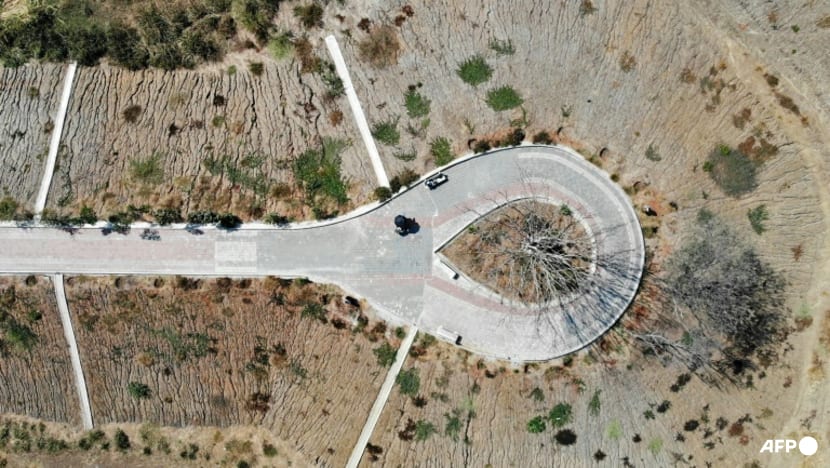Knowledge and relevant data crucial to ensuring water security, says UN
Reliable data needs to be collected on the ground by communities through methods like using a sensor chip, says the director of UNESCO’s Division of Water Sciences.


This audio is generated by an AI tool.
As experts gathered at the Indonesian resort island of Bali for the 10th World Water Forum that runs till Saturday (May 25), the United Nations urged governments to invest in making data on water available so that the scarce resource can be properly managed.
“Water security is a matter of planning and management of the resources. But we cannot do it without knowledge and relevant data,” said Mr Abou Amani, director of UNESCO’s Division of Water Sciences.
“We need to know: How much water do we have? Where is the water? What is the quality of that water? And how that water will evolve with time,” he added.
Mr Amani, who is also secretary of the Intergovernmental Hydrological Programme (IHP), said that when it comes to the management of water, there is a need to know who is using the water, and for what purpose.
People could be using water for consumption for irrigation and for hydropower, he noted. “We are almost saying that we cannot manage something we cannot measure.”
Mr Amani said that reliable data needs to be collected on the ground by communities, for instance, by using a sensor chip. While satellite data helps, given that it provides an indirect measurement, it cannot replace “ground truth data”, he added.
“By combining satellite data (and) ground truth data, we are capable of monitoring on a real-time basis what's going on within a basin. And in that case, it can help to better manage the water resources within the basins,” he said.
NEW NATIONAL WATER ROAD MAPS
The IHP, which has been around for about 50 years, aims to continue equipping governments with tools, methodologies and innovative solutions so that they can address their complex, interrelated water challenges.
The IHP also aims to build capacity in the water sector.
“We need to have a new generation of water professionals capable of advising governments to address water because water is becoming so broad. It’s not only a technical issue - water is also a social issue. It's an environmental issue. It’s an equanimity issue,” Mr Amani said.
The UN, through the Food and Agriculture Organization’s (FAO) new “national water road maps”, will also aim to try to encourage countries to look at water resources management.
Under the initiative, countries come up with an investment plan and their priorities in the water sector, and suggest actions and programmes that can help them achieve sustainable water resources and management, FAO’s director of Land and Water Division Li Lifeng told CNA.
Mr Li stressed that all countries will benefit from doing so.
“There’s no country (that has) already secured water security. All the countries are facing different water challenges - either too much water, or too little water, water at the wrong time or water in wrong places, or a combination of that,” he said.
Water has increasingly been on the political agenda as well, noted Mr Li.
A GLOBAL WATER FUND
Meanwhile, host Indonesia has said many countries have expressed interest in supporting its push to set up a new Global Water Fund to finance projects and efforts to achieve water security.
Some of these countries include Singapore, Thailand, Malaysia and the United States.
This comes following the establishment of the Indonesia Water Fund in 2022.
The Southeast Asian nation said that the global fund will be a step in overcoming the world’s water problems. It can be used to finance water infrastructure projects, mitigation of water-related crises or disasters, climate change adaptation, as well as the monitoring of mechanisms.
Global water coordinator at the United States Agency for International Development Nancy Eslick noted that for any international fund, challenges include the structure a government might set up to implement that fund.
But in this case, Indonesia has a “fantastic system”, she said.


















